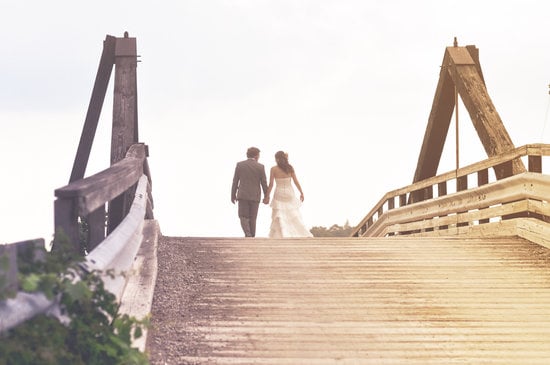If you’ve ever been part of a wedding party or are in the process of planning your own wedding, you may have wondered, “how long is the wedding rehearsal?” A wedding rehearsal is a crucial part of the pre-wedding process, ensuring that all members of the bridal party understand their roles and responsibilities for the big day. This article will explore the purpose of a wedding rehearsal and shed light on its typical duration.
A wedding rehearsal serves as a practice run for the actual ceremony, allowing everyone involved to familiarize themselves with their duties and movements. It provides an opportunity for participants to walk through the order of events, from the processional to exchanging vows and rings, and finally, the recessional. The primary goal is to iron out any kinks or potential issues before the main event.
In addition to preparing participants for their roles, it also gives couples peace of mind knowing that their ceremony will flow smoothly. Now let’s delve into what exactly goes into planning a successful wedding rehearsal.
The Importance of Timing and Preparation for the Rehearsal
When it comes to planning a wedding rehearsal, timing and preparation are vital components that can significantly impact the overall success of the event. This section will delve into the importance of these factors and provide insights on how to effectively manage them to ensure a smooth and productive rehearsal.
Setting the Date and Time
One of the first considerations when planning a wedding rehearsal is determining the date and time for the event. It is crucial to select a date that is convenient for all essential parties, including the couple, their families, bridal party, officiant, and any vendors or professionals involved in the ceremony. Additionally, choosing an appropriate time that allows everyone to participate without feeling rushed or fatigued is essential for a successful rehearsal.
Preparation and Communication
Effective communication with all involved parties is key to ensuring that everyone understands their roles and responsibilities during the rehearsal. Providing detailed schedules, timelines, and instructions in advance can help streamline the process and minimize confusion on the day of the event. It is also important for couples to communicate any special requests or changes to traditional ceremony procedures so that everyone is prepared.
Venue Logistics
Considering the layout and logistics of the rehearsal venue is another crucial aspect of timing and preparation. Couples should visit the venue beforehand to familiarize themselves with the space and make any necessary arrangements for seating, staging, or audio equipment. Having a clear understanding of how things will be set up on the day of the wedding can help prevent delays during the rehearsal.
By prioritizing timing and adequate preparation, couples can ensure that their wedding rehearsal runs smoothly and efficiently. Addressing these factors early in the planning process can contribute to a more relaxed and enjoyable experience for everyone involved, setting a positive tone for the upcoming festivities.
What to Expect During a Wedding Rehearsal
The Order of Events
During a wedding rehearsal, the wedding party will typically practice the order of events for the ceremony. This includes walking down the aisle, standing at the altar, exchanging vows and rings, and exiting as a married couple. The officiant may also go over any readings or other special elements of the ceremony. It’s important for everyone to understand their role and placement during the ceremony, so expect to spend time going through this in detail.
Coordination With Vendors
At the wedding rehearsal, there may also be coordination with any vendors who will be present on the big day. This could include a wedding coordinator, photographer, videographer, musician or DJ, and florist. It’s important to discuss timing and expectations with these individuals to ensure that everything runs smoothly on the wedding day. This may add some extra time to your rehearsal, but it’s essential for ensuring that all vendors are on the same page.
Adjustments and Feedback
Finally, expect that adjustments will need to be made during the rehearsal. This could involve fine-tuning the timing of entrances and exits, making changes to seating arrangements, or addressing any concerns about the flow of the ceremony.
It’s typical for feedback and suggestions to be given by both the couple and their wedding party during this time. Open communication is key to making sure that everyone feels comfortable and confident about how things will go on the actual wedding day.
The Typical Duration of a Wedding Rehearsal
It is important to note that the length of the rehearsal may be influenced by the size of the wedding party and the complexity of the ceremony. A larger wedding party or a more elaborate ceremony may require additional time for everyone to practice their entrances, exits, and other important aspects of the ceremony.
In addition, the experience level of the wedding party members also plays a significant role in determining how long a wedding rehearsal will take. If the majority of the party is familiar with participating in weddings, they may require less time to rehearse compared to a group with limited experience.
| Factors | Influence on Rehearsal Duration |
|---|---|
| Size of Wedding Party | A larger wedding party may require more time for rehearsals. |
| Ceremony Complexity | More complex ceremonies may need a longer rehearsal time. |
| Wedding Party Experience Level | Experienced members may need less time to rehearse. |
Factors That Can Affect the Length of a Wedding Rehearsal
There are several factors that can influence the duration of a wedding rehearsal. One of the most significant determining factors is the size of the wedding party. The larger the group, the longer it may take to organize and choreograph their movements. Additionally, if there are children or pets involved in the ceremony, extra time may be needed to coordinate their roles and behavior during the rehearsal.
Another factor that can affect the length of a wedding rehearsal is the complexity of the ceremony itself. For instance, if there are different cultural or religious traditions being incorporated into the ceremony, more time will be required to explain and practice these unique elements. Additionally, if there are any special performances or readings during the ceremony, additional time will need to be allocated for practicing these components.
Furthermore, unexpected disruptions or delays during the rehearsal can impact its length. It is important for couples and wedding planners to have contingency plans in place in case of unforeseen circumstances such as late arrivals, missing attire or props, or inclement weather. Having alternative arrangements ready can help minimize interruptions and keep things running smoothly.
| Factor | Impact on Rehearsal Length |
|---|---|
| Size of Wedding Party | Potentially extends duration due to coordination needs |
| Ceremony Complexity | Adds time for explaining and practicing unique elements |
| Unexpected Disruptions | May cause delays if not properly managed |
Tips for Keeping the Wedding Rehearsal Efficient and Productive
When it comes to planning your wedding rehearsal, it’s important to keep the event efficient and productive. Here are some tips to help you make the most of your rehearsal time:
1. Create a detailed schedule: Before the rehearsal day, make sure to create a detailed schedule that outlines the timing for each part of the ceremony. This will help everyone involved understand what is expected of them and when they should be ready.
2. Communicate clearly: It’s essential to communicate with your wedding party and vendors before the rehearsal. Make sure everyone knows where they need to be and when. This will help avoid any confusion or delays on the day of the actual wedding.
3. Practice efficiently: During the rehearsal, focus on practicing the most crucial parts of the ceremony, such as walking down the aisle, exchanging vows, and other key moments. Avoid getting bogged down in details that can be worked out on the day of the wedding.
Remember that a well-organized and efficient wedding rehearsal can set a positive tone for your big day, so take these tips into consideration as you plan for your upcoming event.
Potential Challenges and How to Overcome Them During the Rehearsal
Wedding rehearsals are crucial for ensuring that the actual wedding ceremony runs smoothly. However, despite careful planning, there may still be potential challenges that can arise during the rehearsal. It’s important to anticipate these challenges and come up with strategies to overcome them in order to make the most of the rehearsal time.
Here are some potential challenges that may occur during a wedding rehearsal and some tips on how to overcome them:
1. Attendance: One common challenge is ensuring that all key members of the wedding party, such as bridesmaids, groomsmen, and family members, are present for the rehearsal. To address this issue, it’s important to communicate the date, time, and location of the rehearsal well in advance. Consider sending out reminders or even making personal phone calls to ensure everyone is aware of the schedule.
2. Distractions: With emotions running high and excitement building for the big day, it’s easy for distractions to occur during the rehearsal. To minimize distractions, consider choosing a quiet and private location for the rehearsal where everyone can focus without interruptions.
3. Time Management: Depending on various factors such as the size of the wedding party and the complexity of the ceremony, it can be challenging to stick to a specific timeline for the rehearsal. To manage time effectively, create a detailed schedule outlining each step of the ceremony and allocate a specific amount of time for each segment.
By anticipating and addressing these potential challenges, couples can help ensure that their wedding rehearsal runs smoothly and efficiently.
Final Thoughts
As you plan for your wedding rehearsal, it’s important to keep in mind that the length of the rehearsal can vary depending on various factors. While a typical wedding rehearsal may last between 30 minutes to an hour, it’s essential to be flexible and allow for extra time if needed.
Factors such as the size of the wedding party, the complexity of the ceremony, and the level of organization can all affect how long a wedding rehearsal will last.
To ensure that your wedding rehearsal is efficient and productive, it’s crucial to communicate clearly with everyone involved. Providing detailed instructions and a timeline for the rehearsal can help keep things on track and prevent unnecessary delays. Additionally, having a designated person in charge of directing and coordinating the rehearsal can also contribute to its smooth flow.
Remember that potential challenges may arise during the wedding rehearsal, such as absentee members of the wedding party or difficulty in coordinating everyone’s movements. However, with proper planning, clear communication, and a positive attitude, these challenges can be overcome. By staying organized and proactive, you can ensure that your wedding rehearsal runs smoothly and sets the stage for a beautiful and memorable ceremony.
Frequently Asked Questions
How Long Should the Wedding Rehearsal Take?
The length of a wedding rehearsal can vary depending on the complexity of the ceremony and the number of participants. Typically, a rehearsal should take about 30 minutes to an hour to make sure everyone knows their roles and the flow of the ceremony.
How Long Is the Rehearsal Average?
On average, a wedding rehearsal usually lasts around 45 minutes. This allows enough time for the wedding party to practice walking down the aisle, standing in their designated places, and going through any specific actions or rituals that will take place during the ceremony.
What to Expect at a Wedding Rehearsal?
At a wedding rehearsal, you can expect to gather at the venue with the officiant and wedding party to walk through each stage of the ceremony. This includes practicing walking down the aisle, standing at the altar, exchanging rings, vows, and any readings or special rituals that may be part of the ceremony.
It’s also a good opportunity to iron out any logistical details and address any last-minute questions or concerns from the couple or their attendants.

I have been involved in marriages for over 20 years helping couples and singles understand more about them.





